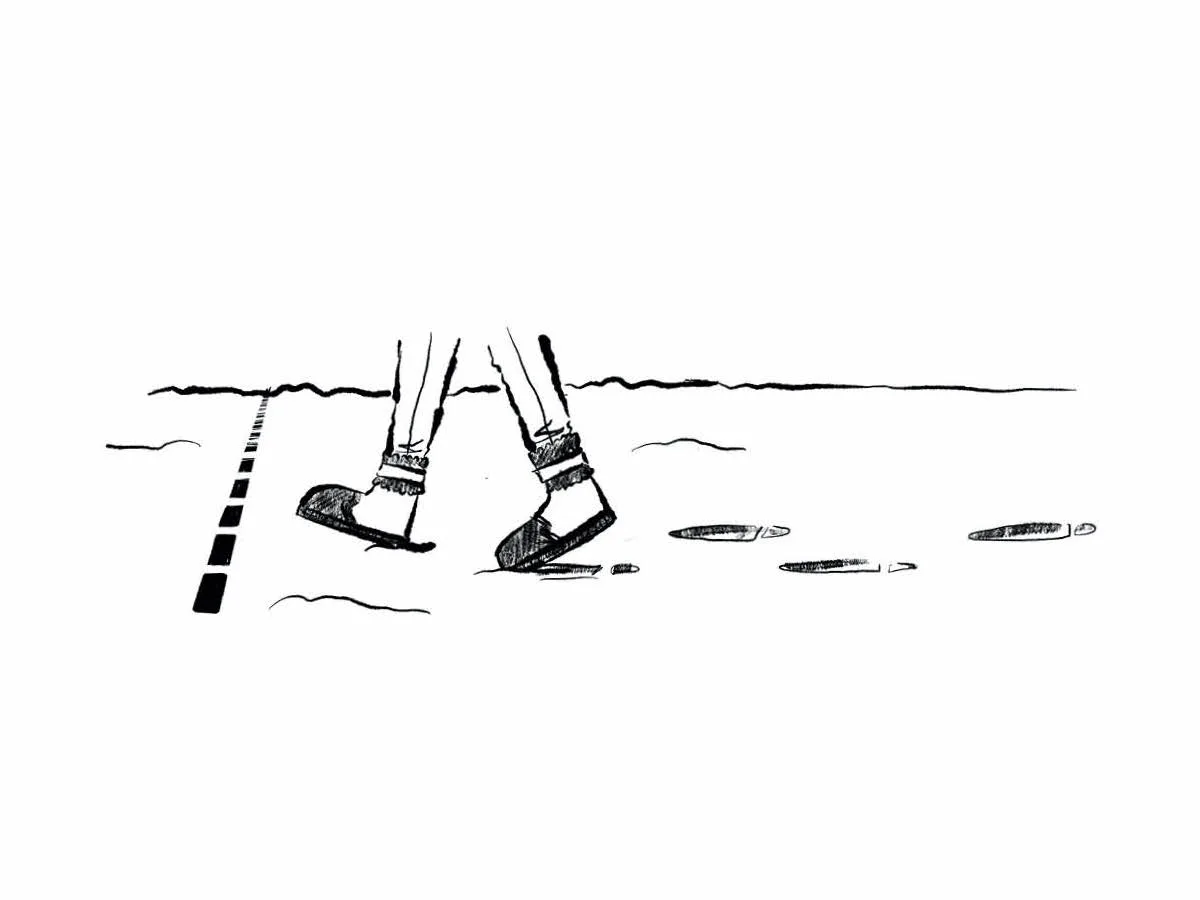
Image by Ivy Sanders Schneider

Image by Ivy Sanders Schneider
In 2011, a Ukrainian friend drove me past the Kharkiv marriage palace. To get hitched, he said, you went through the grand pillared entrance. To get divorced, you used an unobtrusive back door. We laughed. I wasn’t getting married or divorced that day, but I was on my way to Belgorod, across the Russian border, where a friend would pick me up. I had applied for a visa in Kyiv, where I had been doing academic research. Now I was an anomaly, walking across a checkpoint intended for cars, presenting my American passport to a taciturn young guard. Most of the other travelers were Ukrainians and Russians accustomed to crossing without visas, without remark.
This almost-open border was a legacy of the Soviet Union, of course, and before that of the Russian Empire. By the time I visited the edge of Ukrainian-controlled Luhansk in the summer of 2016, Russia-backed separatists had imposed a new, shifting border. Half-delirious with a badly timed fever, I passed through endless military checkpoints and watched elderly people line up to cross the border on foot. The bridge for cars had been blown up, and they had to sell their vegetables and collect their pensions. That phase of the war seems relatively mild now. Since Russia’s full-blown invasion of Ukraine in February 2022, Kharkiv has been disfigured by endless rounds of Russian attacks, though as far as I can tell the marriage palace still stands. The citizens of Belgorod are accustomed to the sounds of explosions across the border; sometimes shrapnel falls on them, too, so it’s safest indoors. Ukraine finally ended visa-free entry for Russians in July of 2022.
In the nineteenth century, revolutionaries (many of them Russian) could move across Europe with an ease that today seems remarkable. Porous borders made it easier to agitate across the continent for a revolution intending to abolish the very notion of the state. Then the Second International crumbled with the outbreak of World War I, as its members chose national chauvinism over class solidarity. The Soviet-controlled Third International tried to foment worldwide revolution, but Soviet citizens found themselves prisoners of an adamantine border, as the hungry, war-torn new USSR struggled to prevent an exodus. Soon Ukraine’s peasants would be starved by collectivization. The final chapter of Leon Trotsky’s 1930 autobiography, written after his expulsion from the Soviet Union, is called “The Planet Without a Visa.” The title is bitterly ironic, marking the distance between aspiration and reality. Trotsky had fought and killed for a world without borders; now no country would let him in.
At the snow-smooth Finnish border with Russia in 2023, I was careful not to step an inch too far. There was no fence or wall, at least not yet, but I’d heard that if I made one wrong move, Finnish border guards on snowmobiles would materialize from the empty landscape. Since World War II, Finland has prepared to defend itself against another Russian invasion. Sensors, cameras, and guard dogs help ensure that anyone crossing into Finland illegally will be caught swiftly. Before the Russo-Ukrainian war, my companion on the trip, a French wildlife biologist and wolf specialist, had lived with her Russian husband on the other side of the border, studying orphaned wolf pups on a deserted island. The border sensors are often triggered by animals, who have a notorious disregard for national boundaries. A wolf pack lives between Finland and Russia. Finnish bears prefer to winter in Russia; it’s quieter outside the Schengen Area. There were once proposals for a cross-border national park: a utopia.
In the same year that Russia struck Kyiv with missiles — Slavic fratricide in the ancient tradition — I got married, not in the Kharkiv palace but on the border of the Netherlands and Belgium. Halfway down the driveway of the wedding venue and poof! we were in a new country. There was something comical about it. In the clean silence of eastern Finland, in the fragrant air of Georgia’s mountainous Tusheti region, in the dense virgin forest of northern Mongolia, the Russian border seems almost as theoretical, if not as amusing. In Finland I had an irrational urge to trigger the sensor, to know how it would feel to have one foot in Russia, a once-familiar place that is now unreachable.
A border is a figment of human imagination — at least until war breaks out. A wall is something you can touch and feel, or at least view from a distance. Never mind that it is destructive and expensive, the physical manifestation of a failure of imagination. Poland has torn up its primeval forest to build an ugly metal barrier along its border with Belarus. Now Finland is building a long metal border fence, topped with garlands of barbed wire. What will the bears say?
Sophie Pinkham teaches at Cornell and is writing a cultural history of the Russian forest. She is the author of Black Square: Adventures in Post-Soviet Ukraine.